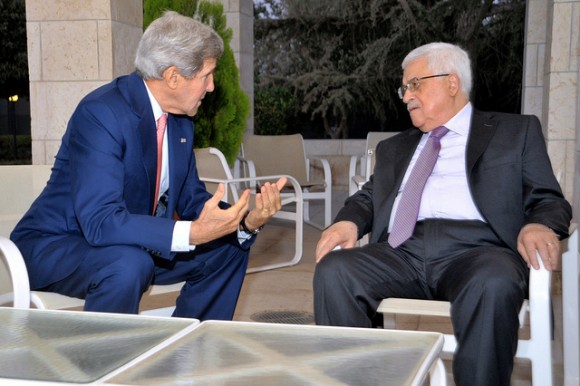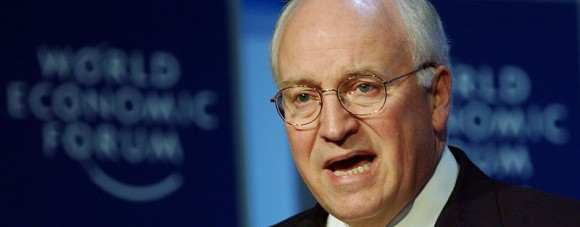
According to reports in the Israeli paper Haaretz, U.S. Secretary of State John Kerry is close to getting Israel and the Palestinians to agree on an interim deal. As reported by Barak Ravid, and translated into English from Hebrew by Ira Glunts, the five articles of the deal are as follows:
- The Palestinians will agree to extend the negotiations for a year, until 2015, and will refrain during this period from taking any unilateral actions at the United Nations.
- The United States will free the spy Jonathan Pollard before Passover.
- Israel will initiate a fourth round of prisoner releases that will include 14 Israeli Arabs [Palestinian citizens of Israel]
- Israel will release 400 Palestinian prisoners “who have no blood on their hands,” that only have a few months remaining on their sentences. These prisoners to be released will be determined by Israel and will include women and minors.
- Israel will freeze most of the construction, except in East Jerusalem, and use restraint [rein in] in publishing building tenders and marketing land to contractors.
Let’s take these one at a time, in mixed order. Article 2 is particularly interesting. Pollard was sentenced to life in prison in 1987 after working as an Israeli spy, infiltrating the U.S. Navy, and secretly passing more than a million highly classified documents to Israel. Israel granted him citizenship in 1995, after eight years in jail, and has been lobbying for his release ever since.
I have to say I’m a little baffled as to why the issue of Pollard’s imprisonment is at all a part of the Israeli-Palestinian negotiations. Pollard has nothing to do with the conflict over territory that has brought the parties to the negotiating table. All I can think is that this is some sort of concession the Israelis are demanding the United States pay for making them go through the trouble of negotiating, as opposed to perpetually and unquestioningly supporting Israel’s gradual annexation of what’s left of Palestine.
Articles 3 and 4 are interesting, too. Releasing 400 non-violent Palestinian prisoners who will be released in a few months anyway doesn’t seem like much of a concession to me. But Israel always characterizes its release of prisoners as a major, back-breaking concession. The inclusion of these articles in this interim deal serves the purpose of being something Israel can point to as a concession (since there are no others on this list).
Article 5, concerning settlement construction, is the most remarkable of all. Notice the incredibly vague and equivocal language. It sounds a lot like Israel will freeze most settlement construction, but taken as a whole it means nothing at all. There is precedent for this. Obama came into office in 2009 calling for a total freeze on settlement construction. Lacking leverage, Netanyahu agreed…and then kept building settlements anyways. Following the 10-month period in which the non-freeze freeze happened, Israel then rapidly increased the rate of settlement construction in what even the New York Times called “a settlement-building boom.”
Settlements, both existing settlements and new ones in construction, are illegal. They are a flagrant violation of international law. That Israel can continue to violate Palestinian sovereignty by building new, state-subsidized Jewish-only settlements in the West Bank and East Jerusalem while supposedly good faith negotiations move to the next phase is an affront to the senses. Can we image in a scenario in which the PLO is granted authority to continue illegal acts against Israel as an explicit part of an interim deal that is supposed to impose concessions on both sides?
Article 1 notes this interim deal will last for a year, during which negotiations will continue. Leaving aside, for now, all of the foreseeable problems that are bound to come with a final deal, it’s important to note that the Palestinians’ one point of leverage over Israel – full UN membership or even prosecution of Israeli war crimes at the ICC – is off the table in the interim.
Kerry has reportedly received Israel’s approval of this plan. He is waiting on the Palestinians.
Update: Here is the Palestinian response:
RAMALLAH, West Bank (AP) — President Mahmoud Abbas says the Palestinians are “immediately” resuming their bid to win further U.N. recognition and has signed applications for 15 U.N. agencies and conventions.
Abbas’ surprise move late Tuesday could derail U.S.-brokered peace talks with Israel.





